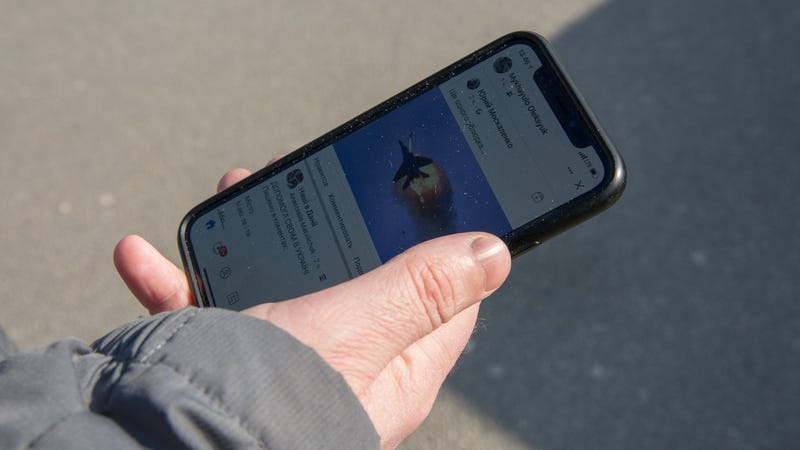
PHILADELPHIA (KYW Newsradio) — We have seen incredible and heartbreaking images and videos from Ukraine as Russia continues its invasion. Some of what we see is coming from mainstream media, but a lot is from people simply posting to social media.
Anyone with a phone essentially can become a war correspondent, and La Salle University Associate Professor of Communications Mike Smith reveals on KYW Newsradio In Depth (listen below) how social media has made an effect on the crisis in Ukraine on multiple levels.

“Russia started a social media campaign in Ukraine as far back as 2018, to begin to convince some of the internal traditionally-ethnic Russian population there that they really should be aligned with Russia rather than Ukraine,” said Smith.
“That narrative has been challenged. It's been challenged by the people in Ukraine with social media posts, talking about how they want to be part of Ukraine and be unified. So almost immediately, the Russian story about why they were in Ukraine was undermined by social media."
Smith said that social media has helped elevate President Volodymyr Zelenskyy to hero status in Ukraine and worldwide.
“He made very savvy use of social media, right from the very start broadcasting with the leaders of Parliament and several agencies of the Ukraine government outside the capitol building, saying ‘We are not going anywhere. We're going to stand up to this,’ and trying to rally international support to his side,” Smith explained.
The force of social media has led Russian President Vladimir Putin and his leaders to halt and disrupt social media, which has now included the removal of access to platforms such as Facebook and Instagram.
“Mr. Putin and his commanders got frustrated with the story that was coming out and began to resort to more forceful tactics to shut off the media, cut off access to social media in Russia, and to a certain extent in Ukraine, by disrupting their computer technologies and becoming more brutal, and the tactics the military are using to suppress stories and people,” said Smith.
Smith said that many Russian citizens are used to state-run media controlling the message, and that some people’s minds in Russia have already been made up because they believe state media.
However, Smith shared how the Russian government has suppressed both mass and social media, particularly during the war in Ukraine.
“Russia has essentially said any media outlet saying something against the government, any reporter is subject to arrest, and up to 16 years in jail for ‘lying, spreading fake news’ about the invasion,” said Smith.
“That's caused a number of us broadcasters to stop reporting live from Russia. It's closed up the last independent Russian media outlet. And so when you're doing that with the sort of broadcast media, and also cutting on social media, you're really kind of clamping down on the story that's told out there.”
Smith further talked in depth about the misinformation campaign by Russian-controlled media and the need for people to consume stories from Ukraine and Russia with a critical, fact-checking eye, and how important it is when considering the possibilities of a provocation to an even greater war. He also dived into how different other wars, particularly Vietnam, might have gone differently in an era of social media.
Listen to Smith’s full interview with Matt Leon on KYW Newsradio In Depth in your podcast player below.

LISTEN on the Audacy App
Sign Up and Follow Audacy
Facebook | Twitter | Instagram

